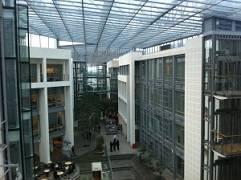July 2, 2014
RIBA calls on next Government to put built environment centre stage
 A new report from The Royal Institute of British Architects (RIBA) sets out a number of recommendations for the next UK Government and calls for greater economic leadership from English cities to rebalance the UK economy and take some of the pressure off London and the South East. RIBA’s report, Building Better Britain: A vision for the next Government, advises that by focusing on architecture and the built environment, the next Government will be better placed to address a sluggish economy, a shortage of new homes, an aging population and the effects of climate change. Building on the findings of the Farrell Review, the report is intended to provide policy makers with a greater understanding of the impact of how places are designed, planned and built and how they affect our day to day lives.
A new report from The Royal Institute of British Architects (RIBA) sets out a number of recommendations for the next UK Government and calls for greater economic leadership from English cities to rebalance the UK economy and take some of the pressure off London and the South East. RIBA’s report, Building Better Britain: A vision for the next Government, advises that by focusing on architecture and the built environment, the next Government will be better placed to address a sluggish economy, a shortage of new homes, an aging population and the effects of climate change. Building on the findings of the Farrell Review, the report is intended to provide policy makers with a greater understanding of the impact of how places are designed, planned and built and how they affect our day to day lives.























July 22, 2014
Corporate social reponsibility remains a vital part of the business armoury
by Mark Sait • Comment, Environment, Facilities management, Insight promotion